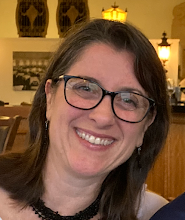About Me

- Silva English Online
- After living in Portugal for 15 years and teaching English in various capacities there, including at the University of Aveiro, I moved back to the United States in 2019. Returning for our church was the best decision we have ever made and God has been so good to us. Reading the Bible everyday and trying to keep the commandments of Jesus are my priorities, along with loving my family and all the people God has put into my life. Helping people is something I enjoy doing, and meeting the individual needs of students who want to learn English is important to me.
Friday, November 24, 2017
Monday, November 13, 2017
USMLE- STEP 2 CS- IDIOMS
Are You Ready?
Step 2 CS patient interviews are especially challenging for people who don't speak English as their first language. Before being able to produce an appropriate diagnosis, you need to identify and assess the symptoms, and before you do that, you need to be able to understand the patient.
How about if you have an angry patient who is speaking very quickly? A lot of patients are in distress, or anxious, and may not be completely coherent presenting a challenge even for a native speaking medical student.
No patient will present their case in medical terminology, so it's important that you are first able to understand everyday, conversational English. An important part of this is having a basic working knowledge of commonly used idioms.
Along with important "immersion" exercises I've created for people to develop an ear and tongue for everyday English, a lot of great websites are at hand to help you increase your idiom vocabulary.
My favorite site is "The Idiom Connection."
Here is an article "20 Embarrassing Phrases Even Smart People Misuse" to show you how it can be challenging for native speakers of English as well sometimes.
If you want help preparing for the Patient Interviews for the Step 2 CS, or conversational English, contact me!
Friday, November 3, 2017
British English vs. American English- which do you fancy?
Fancy or Fancy?
The word fancy in British English is commonly used as a verb meaning "like."
Would you "fancy" a donut? (Would you like a donut?)
The word fancy in American English normally means "decorative" or "pretty" (used as an adjective).
That's a "fancy" dress. (That's a pretty dress.)
The word fancy in British English is commonly used as a verb meaning "like."
Would you "fancy" a donut? (Would you like a donut?)
The word fancy in American English normally means "decorative" or "pretty" (used as an adjective).
That's a "fancy" dress. (That's a pretty dress.)
Subscribe to:
Comments (Atom)



